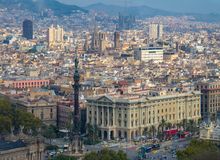


Transformational impact is increased through a holistic perspective for engaging with the media. Many more Christian influencers have engaged intentionally with media during the global coronavirus pandemic.

Let’s not choose between in-building or online children’s and youth work; let’s not create exclusion by cutting off families who have been able to connect to church like never before over the past 12 months.

European Muslims seem to create a balance between loyalty to the global ummah and loyalty to the local state. Many seek to harmonize a Salafist claim of the true Islam with the cultural and religious pluralism of the societies they live in.

People need to learn the significance of eternal life, a life full of meaning based on a personal relationship with the Creator.

“The way young people form bonds, make meaning, and live out their values is constantly changing. This is the most diverse generation that has ever existed”, concludes a survey conducted in the US.

Where there is love, the words flow.

Only our personal relationship with God is worth anything.

What matters is your personal walk with Jesus, not your success or failure in maintaining a specific habit.

“We need to put more emphasis on missional discipleship”, says a report of the Lausanne Movement in Spain about how evangelical churches understand mission.

Leticia Porto, organiser of the Spanish 'Pornography, Children and Women Congress': “Pornography is a school of inequality between women and men in the 21st century”.

The smaller number create groups that have a higher level of sharing and intimacy, this is seen in the Bible discussions, but also in the conversation afterwards.

Mercy is more than offering forgiveness, it includes loving-kindness, pity for those who are suffering and being gracious.

Christians in business should model a better ‘new normal’ for business. This means intentionally building interconnectedness, interdependence and integrity.

Would this already-ailing institution ever recover from lockdown?

Few decisions are as important as the one about the person with whom you are going to spend the rest of your life.

Practical considerations for building trust in partnerships.

However safe and self-sufficient we felt, a virus has reminded us of the fragility of life and has brought us face to face with death.

It does not matter who you are now. The most important thing in life is knowing where we are going to spend all eternity.

Nothing can give our body greater rest than when it is in contact with our Creator.

Why Christians should speak up on behalf of Jews.

Covid-19 exposes the stark inequalities of our world as it wreaks havoc most on those for whom lockdown means no money and no food and who don’t have access to the basics of clean water and soap let alone a garden or park.

Christian counsellor, Emoke Tapolyai, warns about “the culture that feeds young people with the lie of `you can have it all´”, and analyses how to help them cope with the anxiety that it brings.

It is crucial to understand that the Roma are not homogenous but are different minority groups dispersed over numerous countries and continents.

As Christians in today’s culture, we need to have an awareness of the competing gods of digital Babylon. If we actively serve the gods of Europe, we may in the end find ourselves not worshiping the God of the Universe.

Nothing can compare to the security of our relationship with him and the peace that he puts in our hearts.

Las opiniones vertidas por nuestros colaboradores se realizan a nivel personal, pudiendo coincidir o no con la postura de la dirección de Protestante Digital.